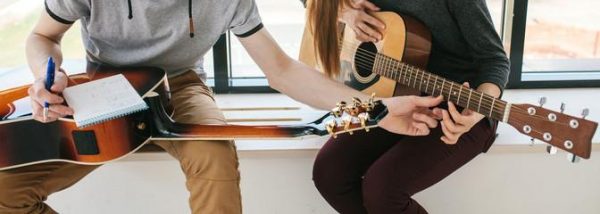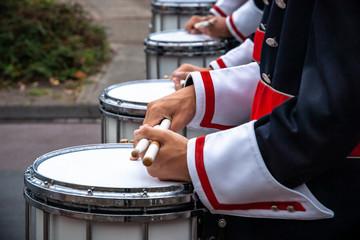Most parents and teachers perceive music as only a form of entertainment. They never think that maybe this is what the students need to improve their intellectual capacity, social life, problem-solving skills, and many other important life skills.
There is a section of the brain that processes reading skills, sound, speech, and language skills. This section is best developed with creating songs, which, in turn, ensures permanent mastery of information. These are all important in the intellectual growth of a student.
What’s more, taking music lessons enables students to think further from the closed classrooms, and hence their creativity is enhanced by this open-mindedness.

Strong Self-Esteem
Being taught music from a young age makes students learn how to deal with constructive criticism. Additionally, accepting results and corrections and being able to put them into practice is a skill that goes a long way in helping one learn more new things. This, in turn, builds confidence since one will not feel intimidated at any point when corrected.
Additionally, the group work interactions carried out in music lessons make one understand that everybody is not perfect and that there is always a chance of improvement. This also builds self-confidence when one realizes that they are not the only one with a weakness. Moreover, performing the songs and playing instruments before the teacher and other students also boosts self-confidence and enables the students to come up with ways of dealing with anxiety.
Introduction to Various Cultures
Through music, students get a glimpse of different cultures and practices, which bolsters their appreciation and respect for other people and their different cultural practices. This also widens their knowledge of the various cultures around them.
Enhances Discipline of Students
Delayed gratification is a skill that most students need to hone at a very early age. They need to know that there are no short cuts in life or that they should not take an immediate option in the hope that they will get a better chance in the future.
Boosts Creativity
The world has taken a different turn, whereby creativity gives you an upper hand in most places, especially on the job market. Thus coming up with notes to create rhythm is a special form of creativeness that boosts the creativity levels of a person. Hence music students do not find it hard coming up with original and unique content.
Currently, many careers require artistic creativity, and therefore, giving creative education more time and resources will be beneficial to the students.
Sharpens Problem Solving Skills
If a tune or rhythm does not check out, then one has to find an appropriate way in which they can be blended to form a perfect tune. This implies that music has a way of helping students to process information and find a solution to problems that they are faced with. Some experts claim that students who have been learning music from a tender age can process and comprehend information very fast without being given many instructions.

Distraction From Bad Vices
Students who are in bands, choirs and orchestras hardly have the time to think of engaging in activities such as drug abuse or gambling. Therefore, we can argue that through music, society becomes better.
Student Engagement in School and Performance Improvement
This is the best way to bring all students on board. Music is interesting, and thus it assists to bolster students’ engagement in school activities, especially co-curricular undertakings. Additionally, if a student performs well in music, they will have the zeal to put the same amount of effort into other subjects. This, therefore, brings out an all-rounded student who is good in all areas of their school work from arithmetic to music.
Closing Remarks
It is important to note that music is not only a leisure activity that has no impact on students; it has a lot more to offer than just entertainment. It enhances coordination of the body and mind of students, boosts self-esteem and creativity, and acts as a distraction to bad vices.





